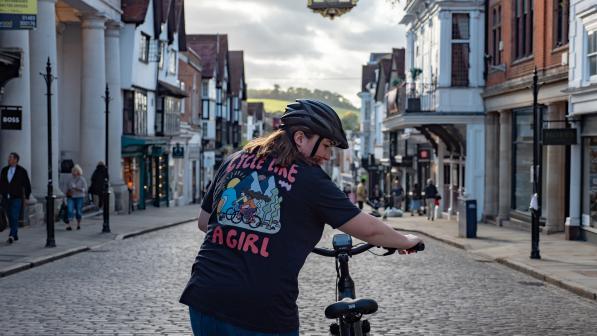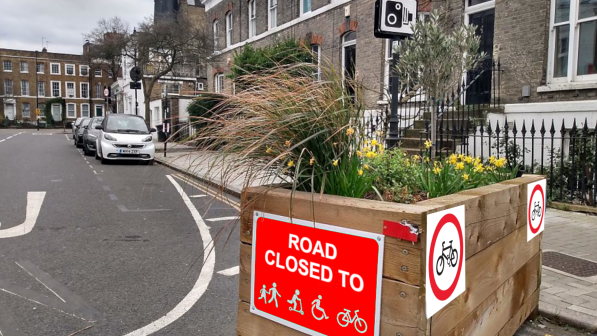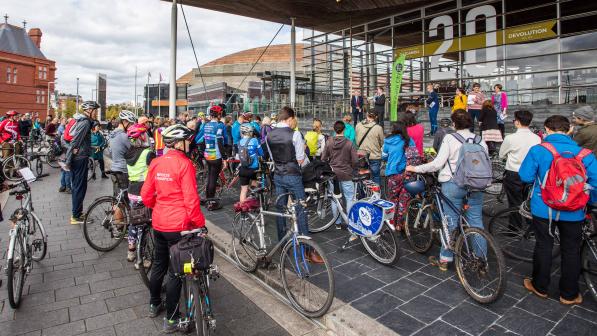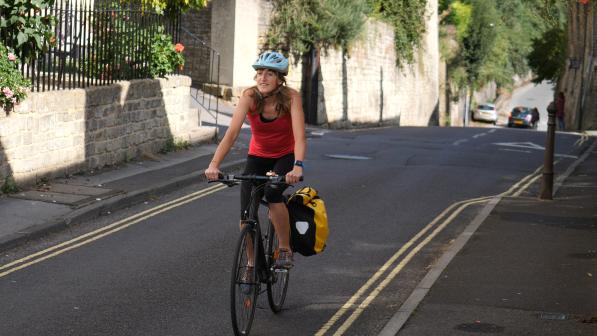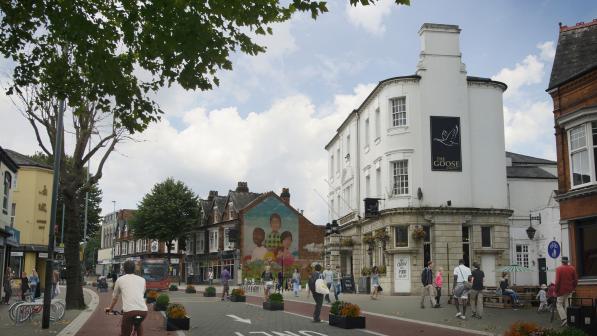Hating liveable neighbourhoods – just to get a headline

If you live on a street where motor traffic has increased steadily over the years and you’re concerned about your kids cycling to school or just playing out, it’s unlikely you were ever asked what you thought about high traffic neighbourhoods. I’m not usually a fan of acronyms, but let’s just call them HTNs.
Paradoxically, as soon as anyone tries to reverse this and create a more liveable neighbourhood, with less motor traffic on residential streets, people are outraged they weren’t fully consulted, with some politicians and segments of the media losing any sense of perspective.
Soundbites, anecdote and populism replace rational analysis, and all because someone mentioned the words low traffic neighbourhood.
I said I don’t like acronyms, but I can’t write this article without using one. That’s because I think low traffic neighbourhoods, creating attractive, safe and healthy places for people rather than cars, are a fantastic idea, but I’ve been trying to avoid using the LTN acronym they’ve been given.
It’s an acronym increasingly being used with venom and disdain by people who forget that what they’re opposing are typically restrictions on through traffic not on all motor traffic, people-friendly main roads with safe space to cycle and generous pavements, all connected by quite streets to make networks of direct routes for people of any age or ability.
Comparing LTNs to air strikes on Syria
Take Rupa Huq for example, MP for Ealing Central and Acton, who last week told the BBC’s Chief Environment correspondent Justin Rowlatt how concerned she was about tensions being inflamed by low traffic neighbourhoods.
Here’s a tip, Rupa: if you don’t want to inflame things further, don’t pour petrol on the fire and fan the flames by comparing local traffic restriction measures with concerns about targeted air strikes on Syria, Brexit and COVID!
Stirring up a culture war
I mention the fact-checking because, in a week when violence against women was rightly the lead story in most news outlets following the tragic death of Sarah Everard, the BBC were content to allow claims that LTNs were putting women’s safety at risk to go unchecked.
That led Lord Berkeley, patron of the All-Party Parliamentary Group on Cycling and Walking, to write to the BBC’s Director of Editorial Standards to point out that the BBC’s report “did not contain any data or facts relating to the efficacy of low traffic neighbourhoods, as you might expect from the BBC’s Science and Environment Unit”.
Specifically, Lord Berkeley complained that the report failed to meet the broadcaster’s editorial guidelines on impartiality, pointing out that “multiple instances of illegal behaviour - death threats, criminal damage, driving on the pavement, driving while filming with a mobile phone – were featured without question or comment”.
Rather than having a sensible discussion on how we need to adapt and use our cars less, the BBC embarked on its own journey to stir up a manufactured culture war
Lord Tony Berkeley
Why ruin a sensational story with a fact check
It was the BBC’s failure to question the assertion that women were being put at risk by LTNs that was most galling, with a contributor described in the piece as a resident of the featured LTN claiming that single women were no longer able to take a taxi directly to their front door any more.
Except they are, and it wouldn’t have taken the BBC long to sanity check that claim given that it took journalist Carlton Reid no time at all to establish that, although the road in question is blocked to motorists with a number plate recognition camera, there’s still motor vehicle access via other entry points to all of the houses on the street.
As Carlton pointed out, London taxi drivers who fail to drop a passenger at a specified place breach hackney cab rules in place since 1853, risking a fine of £1,000. When a member of Better Ealing Streets contacted various taxi firms operating close to a London LTN to ask whether they were unable to reach any addresses since LTNs were introduced last year, they were told that they could all still pick up and drop off directly to door.
But instead, in a week when incredibly important questions were being rightly asked about violence against women, the BBC managed to link that to low traffic neighbourhoods, whilst Rupa Huq was stoking the fire with references to Syrian air strikes.
Alternative facts
It would have been far more productive if the BBC had bothered to look at the evidence around low traffic neighbourhoods, though to be fair to them, the Times has really struggled with that as well.
Back in February, the paper got terribly excited after it looked at some data on property prices and concluded that low traffic neighbourhoods were being introduced in wealthier streets, forcing cars into streets where it said the poorer people lived.
So LTNs just benefit wealthy Londoners, claimed the Times.
Fortunately, instead of a clumsy attempt to gauge fairness by comparing average property prices, academics from Westminster University led by professor of transport Rachel Aldred carried out some proper research into equity and fairness in and around low traffic neighbourhoods, concluding that low-traffic schemes actually benefited the most-deprived Londoners.
We don’t like them, but we’re not sure why
Those who’ve already decided that LTNs have been imposed without consultation, causing all manner of problems, will of course argue that the Times’ evaluation and Rachel Aldred’s research are competing pieces of evidence, or alternative facts. They really aren’t.
The first is the product of a journalist with a spreadsheet, the second the most comprehensive evaluation of low traffic neighbourhoods that’s been undertaken, published by respected academics holding out their work for peer review.
Sadly, when it comes to low traffic neighbourhoods, it seems that people, papers and politicians are often quick to pick a point of view, but slower to consider the evidence.
Having claimed in February that LTNs favoured the wealthy, the Times' response to Rachel Aldred’s research showing the opposite to be true, was to maintain its opposition to LTNs but change its argument, claiming in a piece no longer available online that they were being disproportionately introduced in poorer areas (the opposite of what it had claimed two weeks earlier), because it was politically easier to implement them there.
Evidence and noise
The only common thread in the Times’ position seem to be that it doesn’t like low traffic neighbourhoods but can’t quite make up its mind why.
So, the next time you hear the claims and accusations that low traffic neighbourhoods cause congestion, put women at risk, increase air pollution or whatever the latest horror might be, it’s worth asking yourself whether you’re hearing facts, data, research and evidence, or just noise.
Do you want more or less traffic in your neighbourhood
At Cycling UK, we think that low traffic neighbourhoods make sense.
That’s why for the Scottish elections in May, our manifesto includes various measures designed to make neighbourhoods more attractive for cycling, and for people.
For the elections in Wales, our manifesto talks about increasing the number of liveable neighbourhoods and prioritising the movement of people.
If you live in Scotland and you agree, please show your support by signing our petition calling on political parties to include commitments in their manifestos to:
- Invest more money in cycling
- Create safe space for people to cycle, walk and wheel
- Enable people in rural communities to cycle
If you live in Wales, you can do the same by signing our petition calling on political parties to include commitments in their manifestos to:
- Invest, spend more money on infrastructure and behaviour change
- Deliver, make it happen by creating high quality cycle lanes and liveable neighbourhoods.
- Do it across Wales, connecting communities across Wales with each other and the countryside.
We’ve yet to launch our election campaign in England, but watch this page for news.
